
Turns Out, The 10 Plagues Of Egypt Might’ve Actually Happened Because Of A Volcanic Eruption And This Person Explains It All
The Passover holiday is a major Jewish holiday and one of the most celebrated ones. During this, Jewish people around the world celebrate by retelling the biblical story of the Exodus from Egypt — including the 10 plagues that God inflicted on the Ancient Egyptians.
The story goes that after Pharaoh refused Moses’ entreaties to let the Israelite slaves go free, God sent 10 plagues to put pressure on the Egyptian ruler. Every time, Pharaoh promises to let the Israelites go but changes his mind each time the plague is lifted — until the last one. The ten plagues are water turning to blood, frogs, lice, flies, livestock pestilence, boils, hail, locusts, darkness and the killing of firstborn children.
The question of whether the story has a true basis and whether it can be linked to archaeological discoveries has boggled historians for a long time. Over the years, enthusiasts and scientists alike have been wondering whether the story on the plagues might have been based on true events that can be proved.
As it turns out, there are theories out there talking about the legitimacy of the story of the ten plagues. Recently, Tumblr users started an interesting discussion that was prompted by… a meme. Scroll down below to read the full story and don’t forget to tell us what you think in the comment section down below!
More info: Tumblr
Image credits: Historica Graphica Collection
Kvothe-kingkiller then went on to provide the links of the sources of the theories. One of them, written all the way back in 2002, is theorized that “much of the Bible story can be explained by a single natural disaster, a huge volcanic eruption on the Greek island of Santorini in the 16th century BC.” The second source is a little bit more liberal with possible theories, giving out three possible scenarios of what might’ve happened. The first one coincides with the theory presented in the 2002 article – the Bible story can be explained by a volcanic eruption. In the second one, it is argued that “red algae could have sucked the oxygen out of Egypt’s waterways, killed the fish and turned the water red.” Lastly, the third given theory talks about climate change – a study published in 2010 suggested that “there had been a dry period towards the end of the rule of Pharaoh Ramses II.” Thus, if climate change would have caused the Nile to dry up and slowed down the flow of water, the conditions for the growth of the bacterium Oscillatoria rubescens (Burgundy Blood algae) would have been perfect.
Here’s what other people online thought
59Kviews
Share on FacebookI watched a documentary about this around 10 years ago, actually. Still pretty cool, tho.
Load More Replies...First born is also explained. I times of less food the oldest child would get the most food. Jews trew out old grain at the end of the year. Others didn’t. Grain was infected with funguses so the oldest died.
You make a good point, like in history they had many records of poisoning from bad barley or wheat.
Load More Replies...I watched a documentary about this around 10 years ago, actually. Still pretty cool, tho.
Load More Replies...First born is also explained. I times of less food the oldest child would get the most food. Jews trew out old grain at the end of the year. Others didn’t. Grain was infected with funguses so the oldest died.
You make a good point, like in history they had many records of poisoning from bad barley or wheat.
Load More Replies...
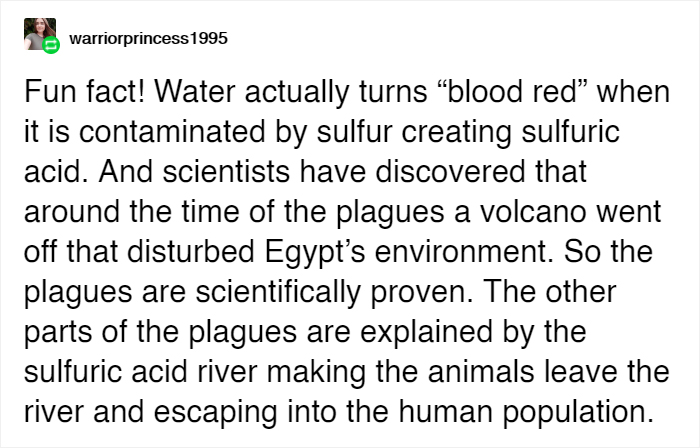

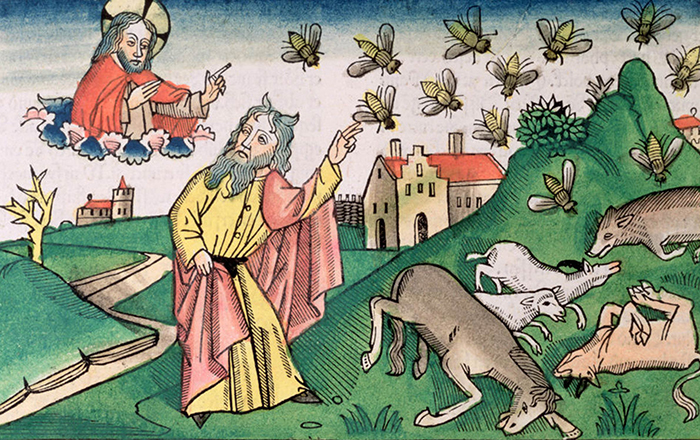

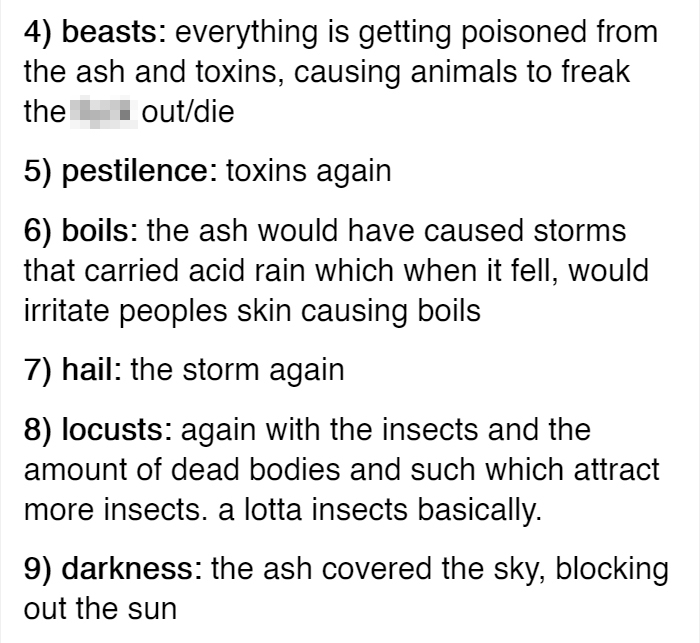
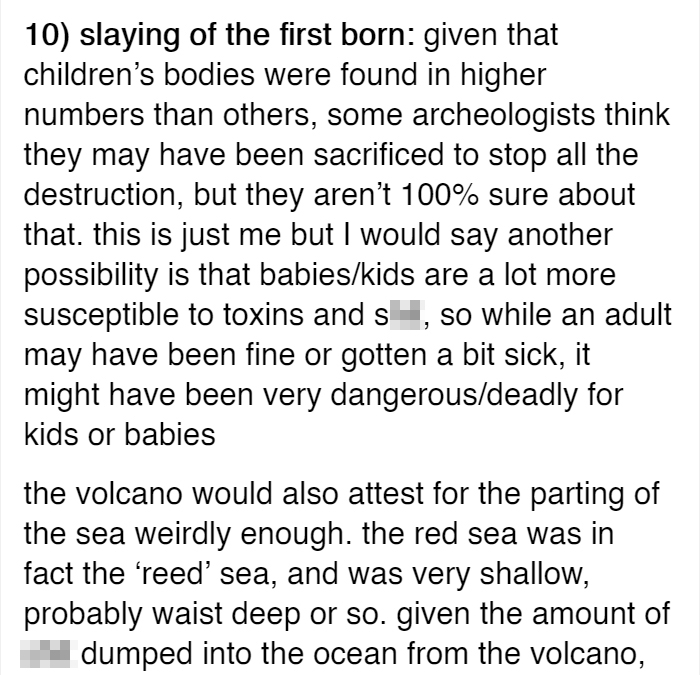
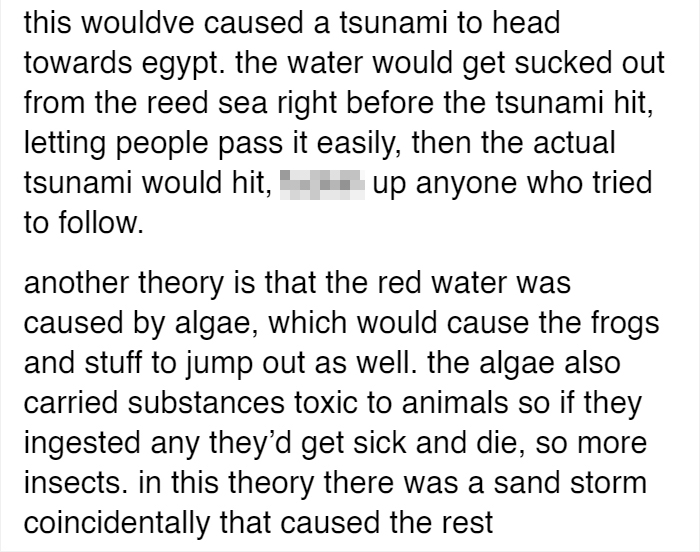

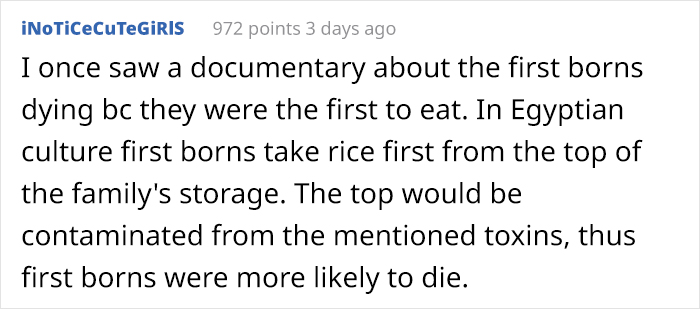





184
47